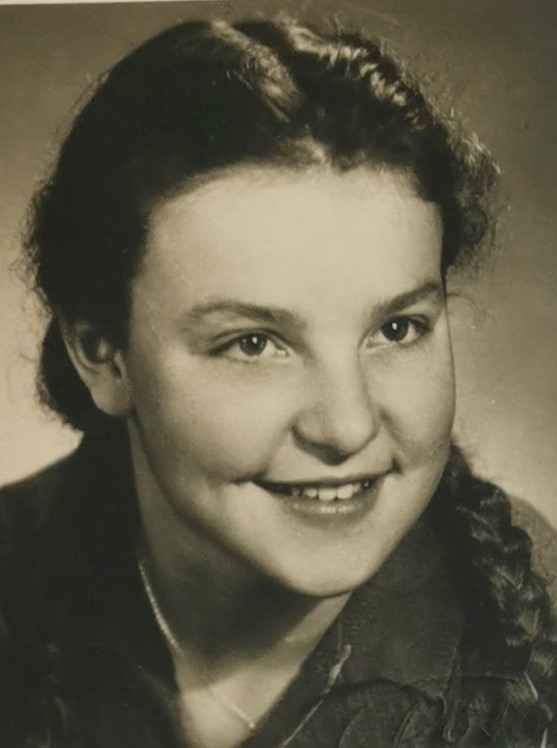People are not divided into states but into good and bad people

Stáhnout obrázek
Hana Svobodová was born on 16 March 1936 in Písek as an illegitimate child of Julie Malcová. She spent the beginning of her life in Prachatice where her grandparents Malecs lived. Shortly after her birth, her mother got married to Jan Kolár who worked on the railway and he adopted Hana. The family decided to leave Prachatice in 1938 because the town became part of Nazi Germany based on the Munich Agreement. They fled to nearby Vodňany where they spent the whole war living in a room of a local shoemaker. Hana met Soviet and American soldiers in Vodňany. After the war, Vodňany became part of the American zone, but the demarcation line was nearby, across the Blanice River. Hana with her family returned to Prachatice at the end of 1945 where they were given a flat after the Germans left. She took part in XI Sokol Slet in Prague in 1948. She moved to Pilsen due to her mother´s new boyfriend at the end of 1948. She studied to become a lathe operator in the Škoda company (back then it was called V. I. Lenin plants) in Pilsen. She later finished her studies at Secondary technical school and worked as an administrative assistant in the company. When she was still a trainee, she experienced monetary reform in 1953 and the disturbances that followed. In 1958, she got married to Milan Svoboda who was employed as the head of the Sales Department in the Škoda company. He lost his job after 1968 because of his opinions on the new political situation. The married couple had two sons Radek and Milan. The family happily welcomed the changes after 1989 and Hana Svobodová left to work in the hospitality industry in Germany for some time. After her return, she started to study University of the Third Age. She became a widow in 2020. In Spring 2022, at the time of our interview, she lived in Pilsen - Slovany and was still active, following public events and taking care of her grandchildren.





